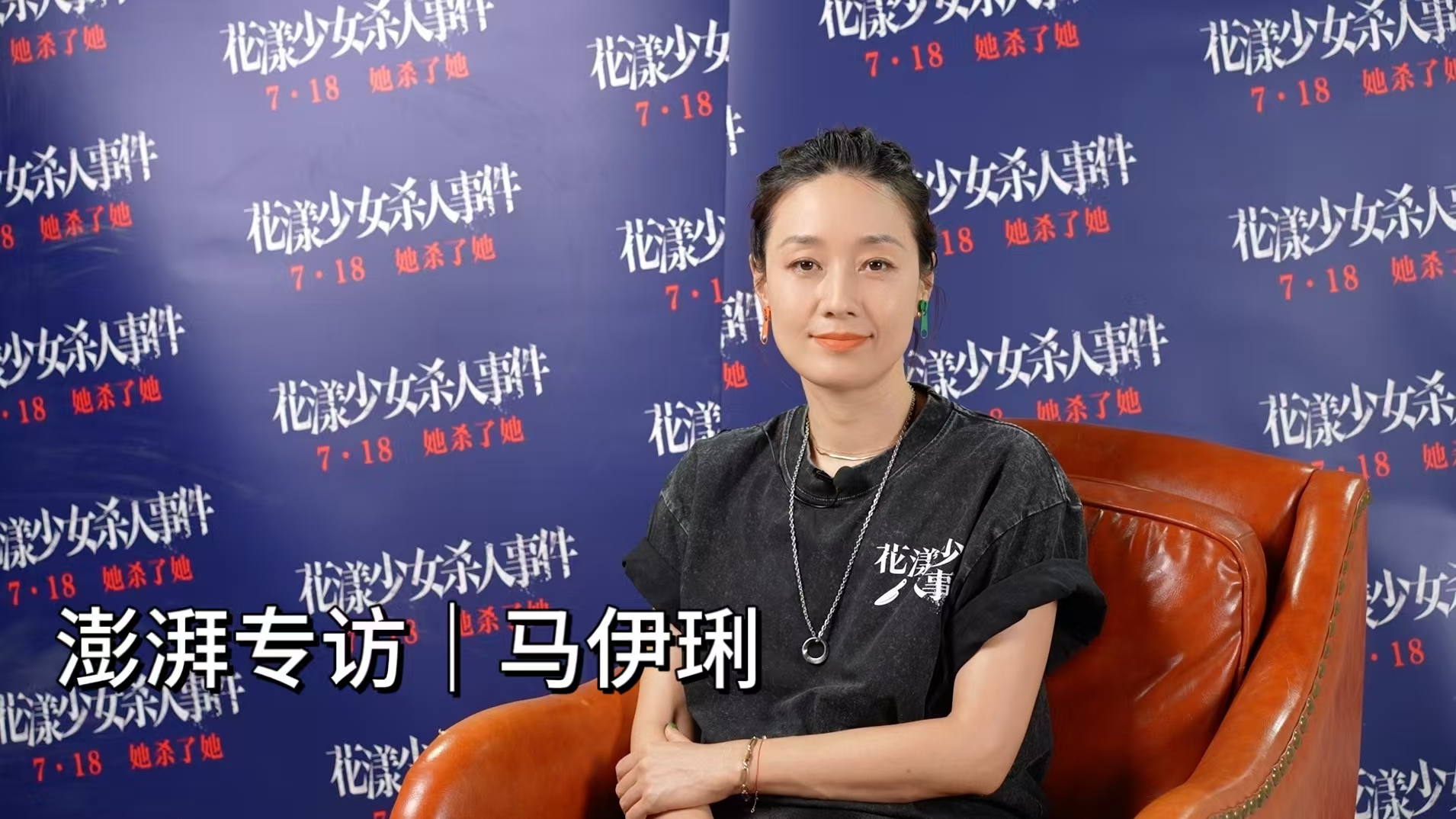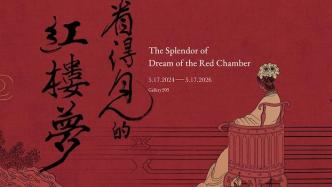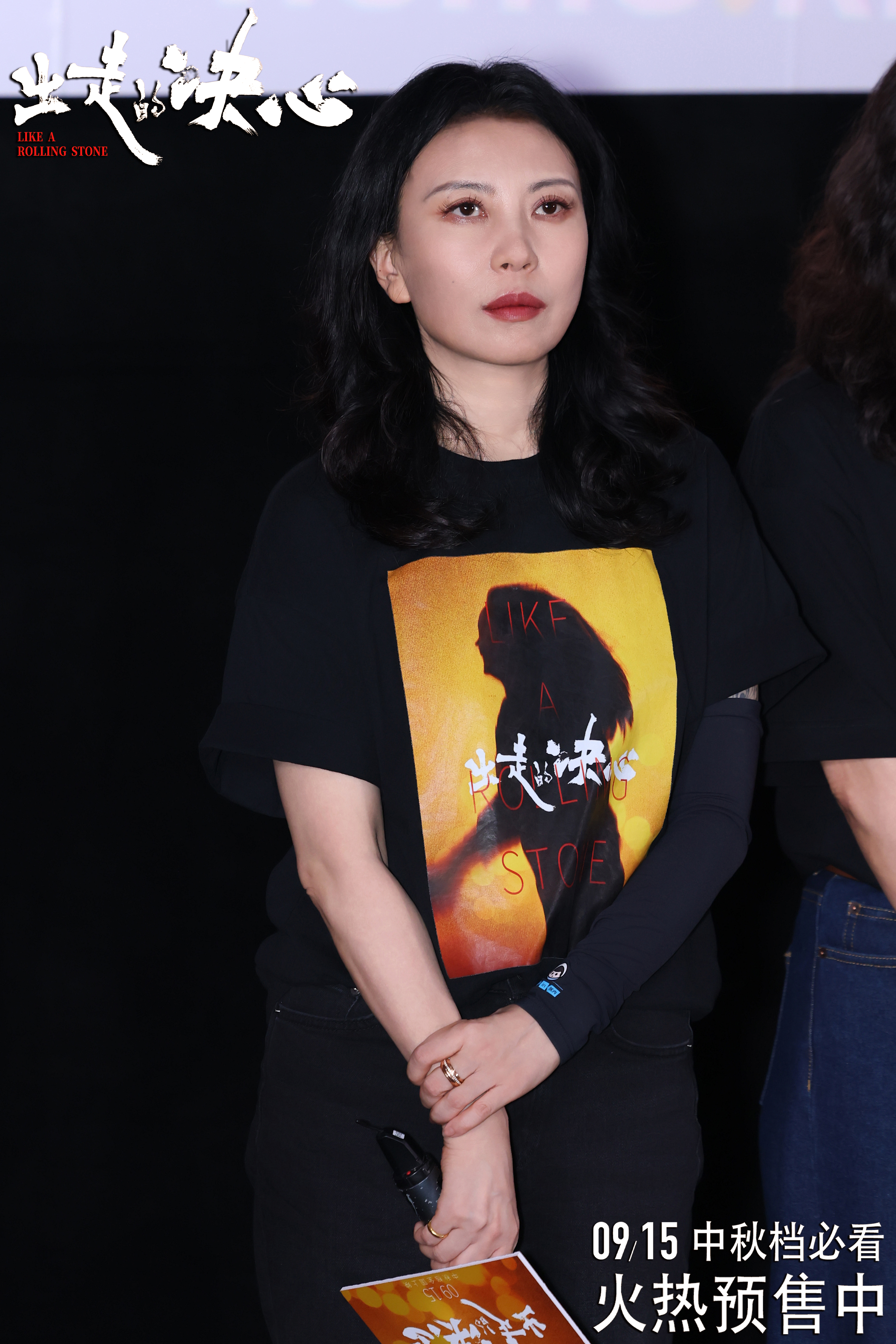
Based on the true story of "Aunt Su Min's Road Trip at 50," the film Determination to Leave is directed by Yin Lichuan, with the script co-written by A Mei and Yin Lichuan. The film stars Yong Mei, Jiang Wu, Wu Qian, and Zhang Benyu, and it premiered nationwide on September 15.
The protagonist, Li Hong, played by Yong Mei, leads an ordinary yet tumultuous life. For the sake of her family, she continually compromises and sets aside her own dreams. In her original family, her father made her give up her education to take care of her brother; in her marriage, her husband's blame and verbal abuse plunged her into depression and anxiety. Even her daughter, who typically supports and understands her, habitually asks her mother to make sacrifices when faced with career challenges. After a long wait, her anxious heart finally cultivates the "determination to leave" amidst pain and repression.

Director Yin Lichuan
Director Yin Lichuan graduated from Peking University and studied film in France. Her 2008 film The Cowherd and the Weaver Girl was nominated for the Directors' Fortnight at the Cannes Film Festival. In addition to directing, she is also a poet and writer. However, her creative work faced a long stagnation after she became a mother. Even after returning to the set, balancing her roles as a mother and director often places her in difficult situations.
Four years ago, Yin Lichuan collaborated with Yong Mei on the short film Reconstruction, which tells the story of women resisting social constraints to rediscover themselves. Coincidentally, both of them stumbled upon Su Min's road trip story and quickly decided to bring it to the big screen.
Li Hong's struggles are not unique; Determination to Leave is grounded in reality, portraying a Chinese marriage and family dynamic, confronting the hidden pain between the individual and the family while prompting the audience to reflect on life and search for more choices to live authentically. Unlike Nora's departure, Li Hong's journey represents a modern narrative of female self-liberation and self-realization.
On the opening day, the film ranked third in the Mid-Autumn Festival box office. Social media platforms like Weibo, Douban, and Xiaohongshu have seen a surge of positive reviews, with many viewers expressing their desire to recommend the film to their mothers.
Recently, director Yin Lichuan spoke with reporters from The Paper, sharing her insights as a daughter, mother, and creator.
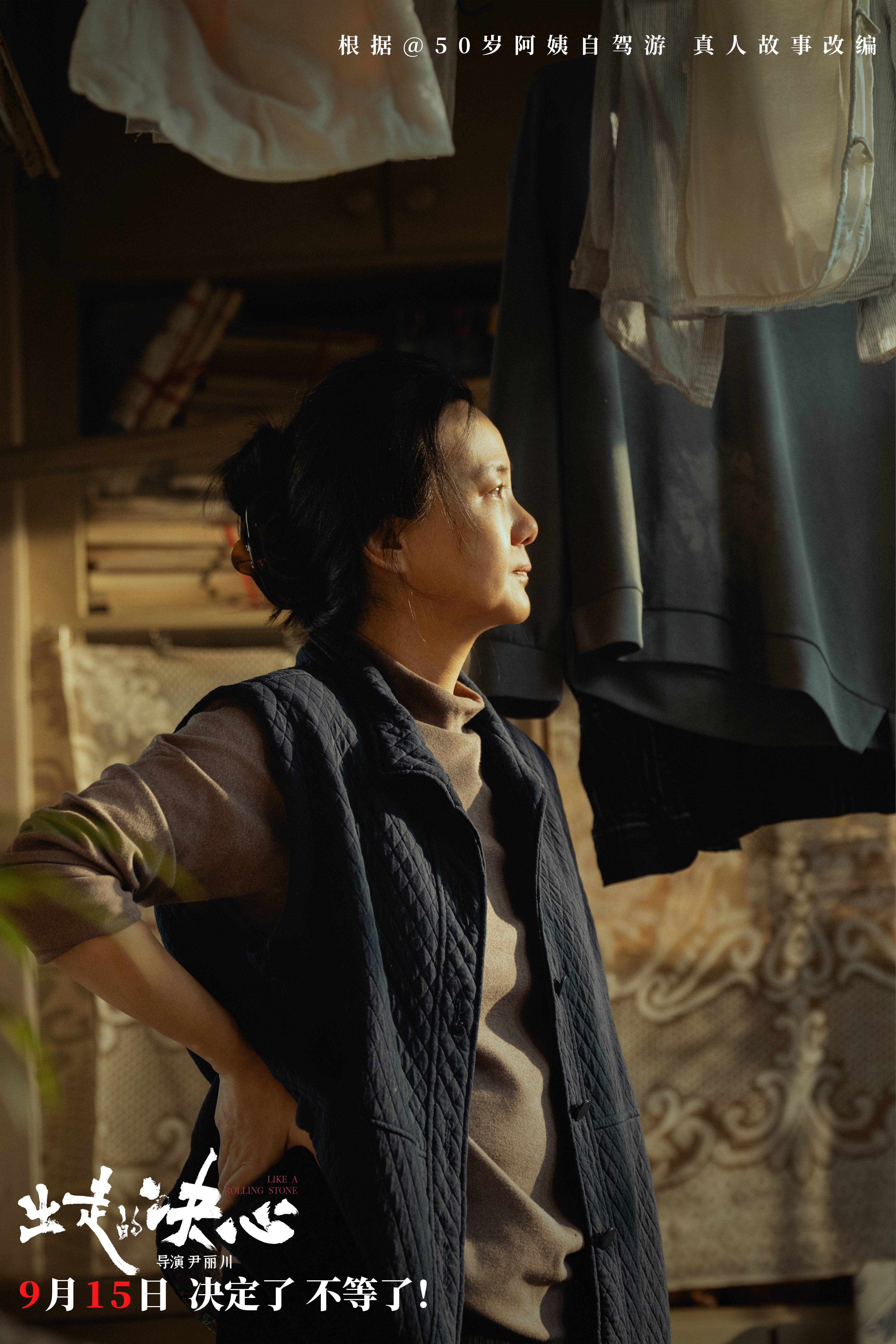
Yong Mei as Li Hong
【Conversation】
Tracing Half a Life Before Departure: Delving into Systemic Challenges
The Paper: There are many ways to interpret Aunt Su's story; it could even be turned into a road movie. Why did the film choose to focus on "her first half of life"? How was this angle determined?
Yin Lichuan: Just as sports films often showcase how an individual achieves victory, we are more interested in how the protagonist overcomes difficulties to reach that goal. The same applies to Aunt Su Min's story; I believe it is more crucial to discuss how she was shaped and how she changed. Once she embarks on her journey, the drama may diminish from a cinematic perspective. We aim to explore the universal challenges she faces by tracing back her first half of life for a deeper understanding of their roots and development.
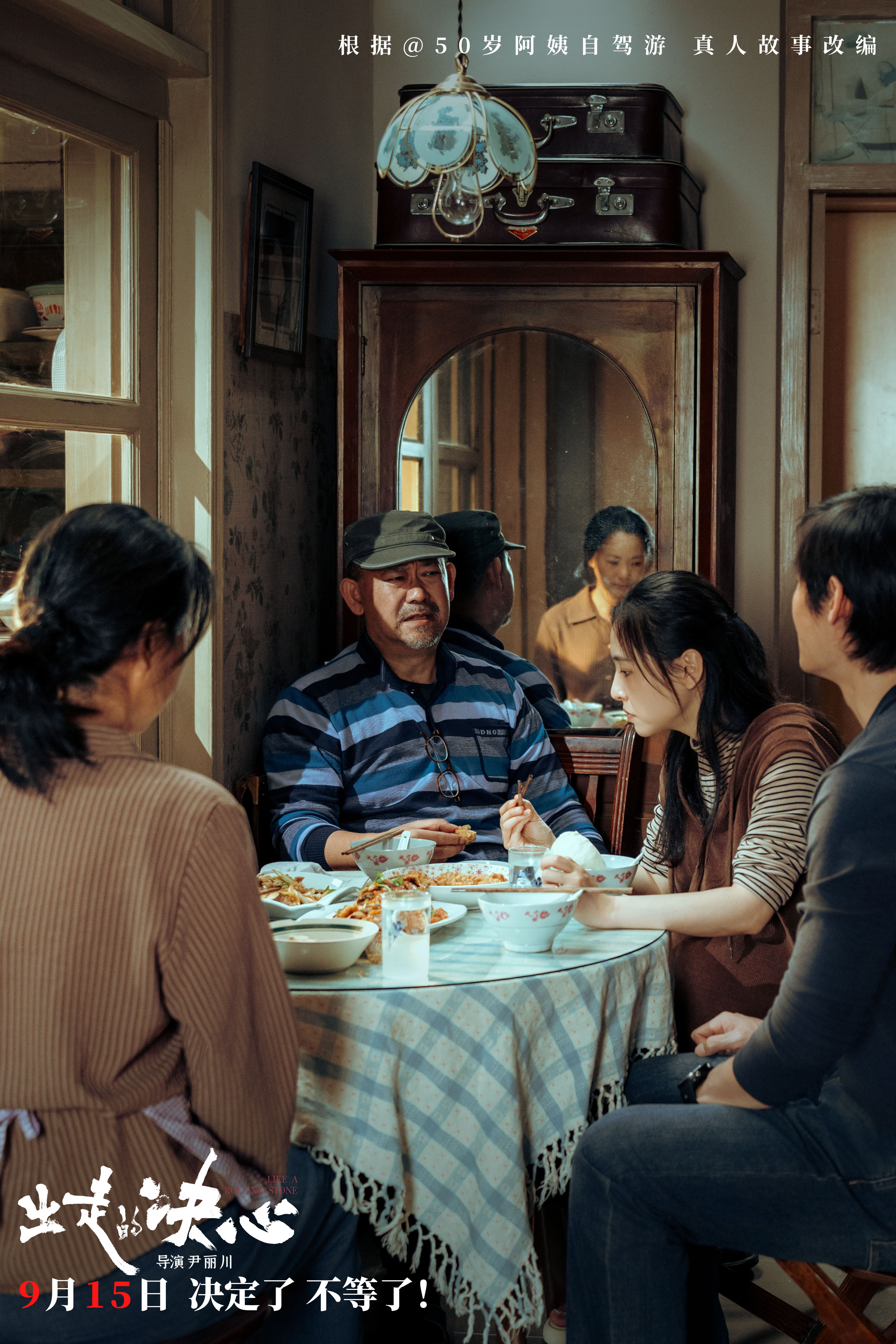
Li Hong, living in the background at the dining table, embodies many experiences of Chinese women, both historical and contemporary
The Paper: Li Hong, as a character, reflects both the historical and contemporary experiences of Chinese women. What observations did you integrate into her character?
Yin Lichuan: This represents the "systemic challenges" faced by women. In the film, Li Hong suffers from oppression from her original family, robbed of opportunities to alter her fate. In her marriage, chores and raising children are implicitly assigned to women; even when living expenses are shared, labor is not. She endures her husband's subtle repression. By the time of her daughter’s generation, there is a growing awareness of female independence, yet the motherhood dilemma still exists. So, who bears the burden? It ultimately falls on the lowest tier of the family structure—specifically, Li Hong and other middle-aged women like her.
After retirement, they believe they can finally live the life they desire; however, they become ensnared again by the needs of their grandchildren. This is a widespread issue that many accept as normal. As mentioned in the film, when Sun Dayong asks, "How can you not understand at this point? Isn't this what you should do?"
This predicament is not overt; it’s not about someone openly oppressing you or being abusive. We seek to portray this very subtle and everyday struggle.
The Paper: Li Hong represents a common experience, but she also possesses a unique self. In reality, Aunt Su has done many things that others wish to do but fear. What observations did you make and how did you shape this aspect?
Yin Lichuan: From a young age, Li Hong retains that naive passion and optimistic adventurous spirit; she has always wanted to travel the world, attend university, and learn more about the world, all of which have been suppressed. Yet, that seed has remained in her heart.
We visited and researched many women of similar ages and found that we often hold stereotypes toward women from different living environments and job identities. I saw a cleaning lady self-learning to play the piano on a discarded instrument and rural women workers with a love for reading; these are real occurrences. Every individual has a rich inner world and a yearning for beauty, regardless of their education level or personal circumstances.
Li Hong is also internally expansive, fond of flowers and beauty, bursting with vitality. She ultimately takes action, learning to drive at 50 and continually embracing new things. I believe this is vital. She learns to create short videos and interacts with strangers online; this vitality and proactivity cultivate the person she later becomes.
The Paper: Aunt Su's unique experiences also stem from overcoming various difficulties and facing many challenging yet exhilarating moments alone. Do these resilient qualities relate to her earlier life experiences?
Yin Lichuan: She has indeed developed specific skills from practical experiences, such as caring for three younger siblings from a young age, managing a household after marriage, and working various menial jobs; these have undoubtedly fostered resilience. However, I believe one does not have to endure hardships to become oneself. She could use her resilience to pursue more beautiful things, striving and contributing to what she loves.
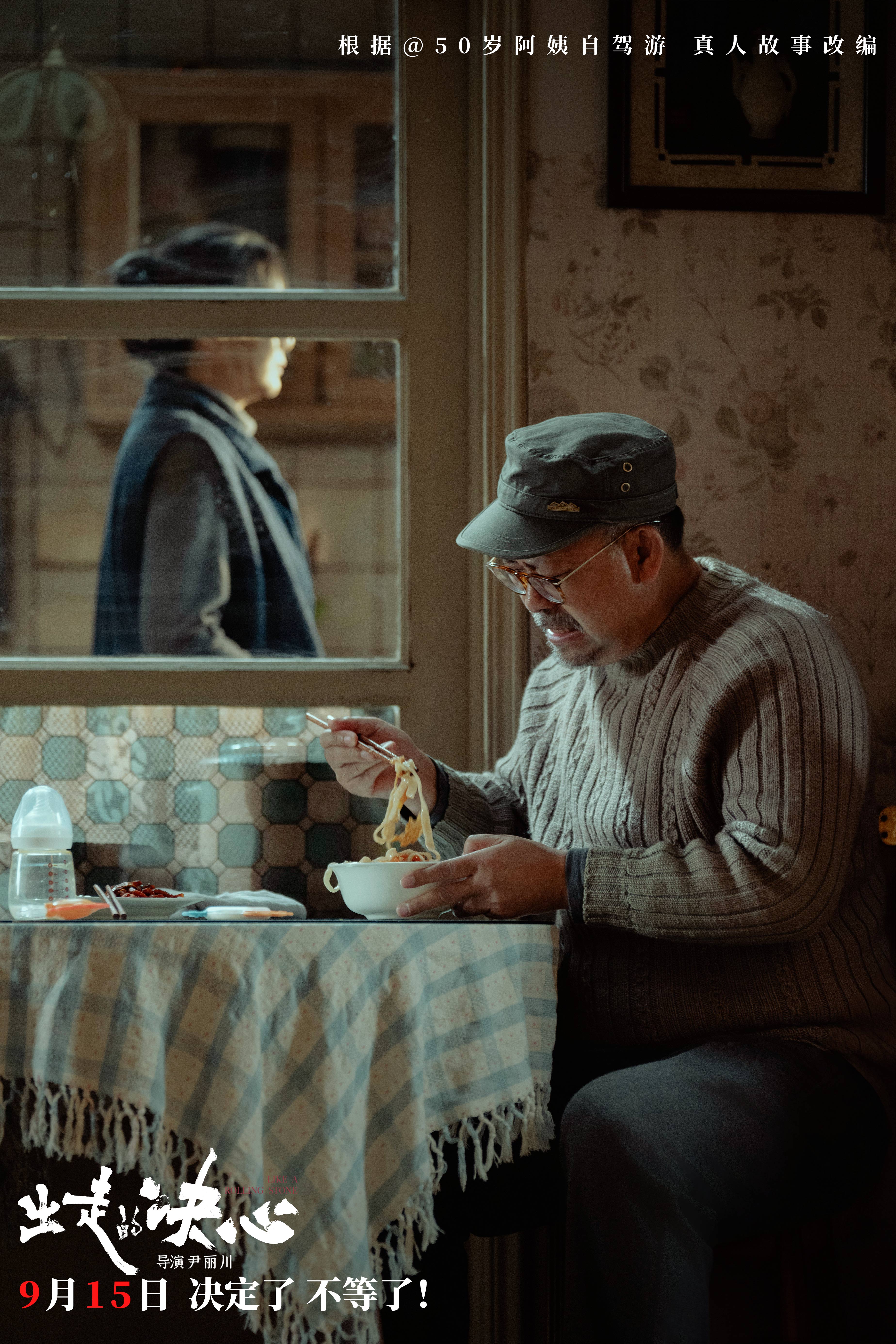
Jiang Wu as Sun Dayong
Finding Balance Between Universal and Individual Experiences
The Paper: When preparing to shoot this movie, what aspects of the prototype character were you most curious about? Were there any features or traits that left a strong impression during your initial interactions?
Yin Lichuan: The character of Li Hong embodies the essence of many women; she is not solely based on Su Min. We also interviewed many ordinary women. Regarding Su Min, we reviewed all her materials, both written and visual, but we didn’t conduct further interviews with her at the beginning. I wanted to avoid making it too "biographical," as this is a narrative film that requires a retelling. Su Min was very open and respected the creators without imposing any demands on our work.
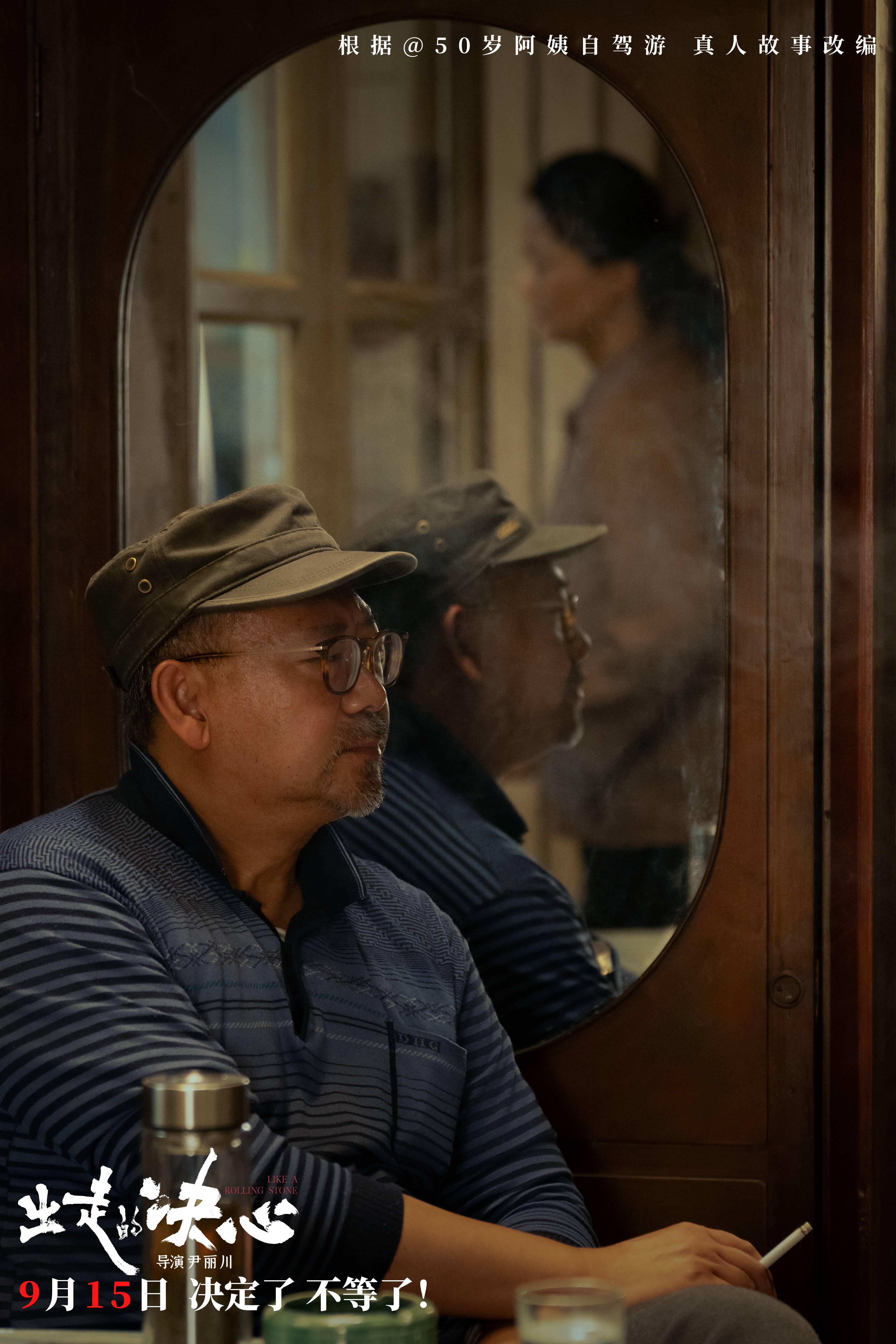
Due to the overly negative portrayal of the husband Sun Dayong, no male actors were willing to take the role initially
The Paper: I heard that the film initially struggled to find male actors because of the negative portrayal of the husband. How did you approach the characterization of male roles?
Yin Lichuan: Indeed, the greatest obstacle initially was finding male actors, as many felt the role was too negative. I want to give special thanks to Jiang Wu, who not only stood by us but also added rich details to the character, making it less oppressive and more vivid and complex.
In shaping the male roles, we consciously toned down some of the more extreme elements. For instance, in reality, Su Min's husband exhibited violent behavior, but I aimed to strike a balance between universal and individual experiences. His behavior and character also relate to his own family background; he never received enough love and lacks the ability to give love, embodying a sense of tragedy.
At the end of the film, after the woman leaves, the man sits in the place she has always worked, gazing outside from behind a fence; he is also trapped in his own way. One younger male character undergoes a transformation, ultimately switching to a position with lower pay but more time for family.
In summary, we strive to present the male characters from multiple dimensions. However, the film still requires a clear perspective, which is why we chose to present the story from a female-centric viewpoint.
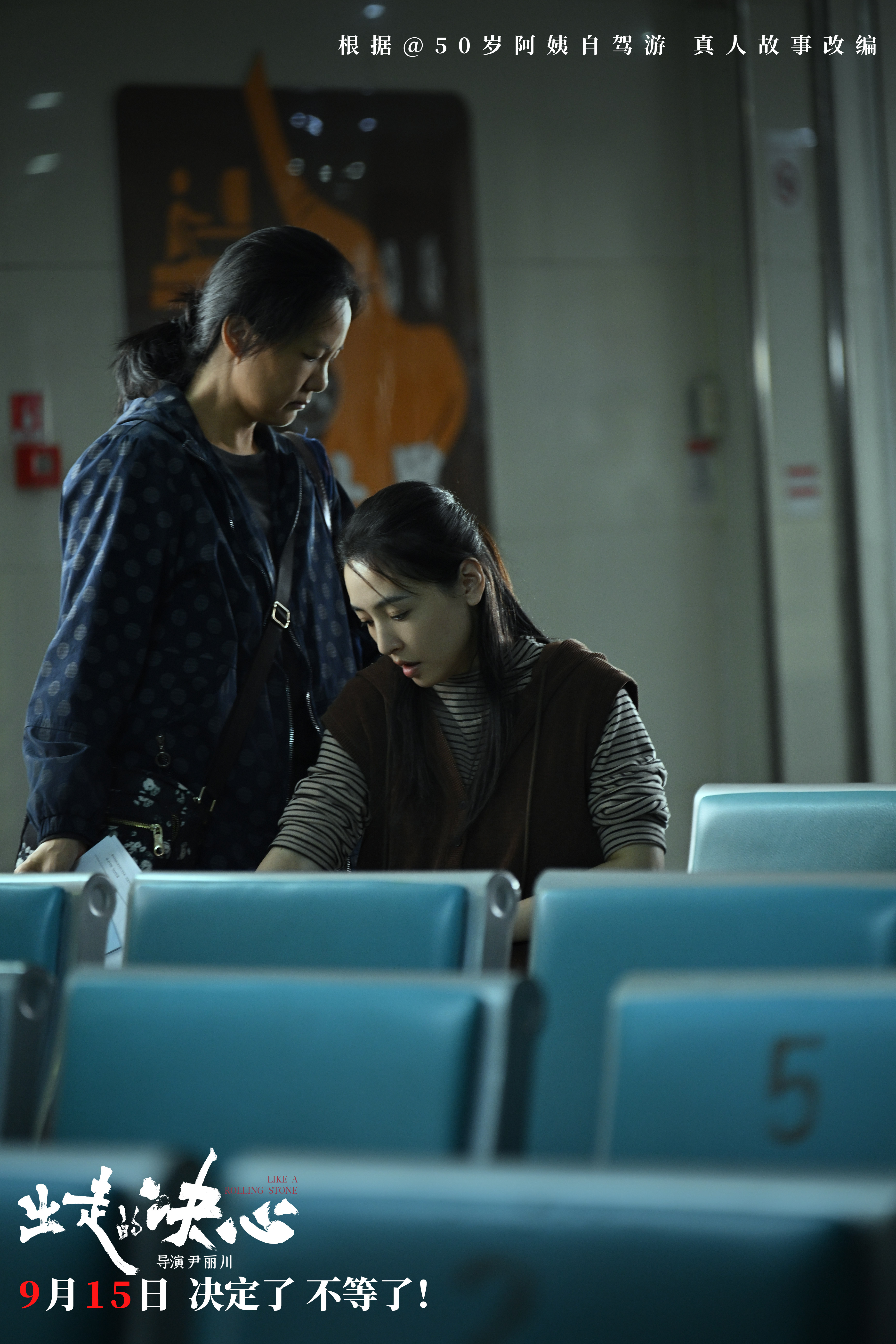
The relationship between mother and daughter is a focus of the film
The Paper: The film portrays two different generations of women, yet even the daughter finds herself both understanding and "binding" her mother at times. How did you consider the similarities and differences in the struggles faced by these two generations of women?
Yin Lichuan: The mother-daughter relationship is indeed a key focus of our portrayal. Many reports we see often highlight how women resist the shackles of "patriarchy" imposed by their husbands. However, the mother-daughter relationship offers a more subtle hindrance; it demands that you stay by invoking love or the designation of being a grandmother. This expectation aligns with what society anticipates from a woman like Li Hong, which is something I particularly wanted to address.
The Paper: Yong Mei's performance feels incredibly authentic, was she your first choice right from the start?
Yin Lichuan: Yes, we both discovered the story almost simultaneously. When she saw the report, she said the character was full of vitality. It was truly serendipitous that all of us women collectively chose this story.
The Paper: The real Su Min is still on her journey; how did you decide on the ending point for the film?
Yin Lichuan: Determining the ending was indeed challenging. We considered various conclusions, including depicting her facing and overcoming difficulties along the way. We also felt it necessary to include a dialogue between Li Hong and her daughter, as the latter is her most significant concern. Li Hong’s departure also, to some extent, places her daughter in a specific predicament; thus, emotional reconciliation and mutual understanding were essential. Meanwhile, we need her to return to her own identity. So, we designed a moment for her during her journey when she sees her past self; having longed to travel the world in her youth, she finally accomplishes it at over fifty. Ultimately, we opted for a scene that included her daughter and a glimpse of her past self. There was another ending we didn't use, where, at the car's side, a little girl asks her where she comes from and where she's going. After a moment's pause, she smiles brilliantly, symbolizing the potential paths in her life that have now opened up.
The Paper: Your creative work faced stagnation when you became a mother. What were the experiences and feelings during that time? How did it inspire your later creations?
Yin Lichuan: Motherhood posed my greatest dilemma. For a time, it completely submerged you, replacing your individual identity. This can be very painful, especially for those who yearn for a sense of self-worth. Before becoming a mother, one might feel as if they possessed the whole world, but once you become a mother, that's altered. Ultimately, I comforted myself with the thought that as a creator, I have the privilege of transforming pain into material, which leads to increased sensitivity
